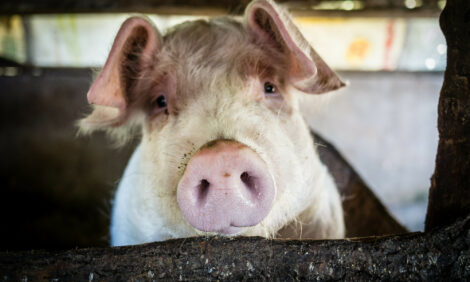



Tanaka Precious Metals to Supply Pork Detection Kits
JAPAN - Tanaka Precious Metals is to supply companies in Japan and overseas centered on the Islamic world with two 'Easy to Use Pork Detection Kits' for the detection of pork in either raw or cooked food materials. The kits are produced to a high level of sensitivity.These detection kits are immunochromatographic assays using nano-sized colloidal gold particles to reveal the result. The assays allows a rapid detection of pork in food samples in a short time and at a low cost without using any special equipment or requiring skillful techniques. In addition to food regulatory agencies and meat processors in Japan, these kits can also be widely used by manufacturers seeking to obtain widespread trust in the quality of their food products globally. The detection kits will also be of interest to trading companies that are considering new business opportunities in the Islamic world where pork is a taboo for religious reasons. The main features of these detection kits are as follows:
- Assays can be performed on spot in 10 to 15 minutes.
- Assays can easily be performed anywhere as no special equipment is required.
- The assay can detect pork levels as low as 0.1 per cent in cooked food and 0.005 per cent in raw food.
- The cost per assay is much cheaper than any existing methods.
In many regions in Japan, there have been growing concerns about food among consumers due to problems concerning meat processing. The mislabelling of ground beef in 2007 by the meat processing company, Meat Hope, and another company being found to include other undeclared species of meat in eight of its 15 ground beef samples revealed by the government conducted survey using DNA techniques, has brought public attention to this species adulteration issue. The Islamic population, which accounts for a quarter of the world's total population, is expected to grow rapidly and the food market for this group is also rapidly expanding. It is anticipated that there is an increased interest and need in pork testing by Muslims for whom pork is prohibited from their diet.
Differences from Existing Methods
Existing testing methods (PCR(3) and ELISA(4)) require special techniques and equipment, because of laborious procedures involved in sample preparation, extraction, analysis and obtaining results, many food processors and dealers have been unable to conduct sufficient testing for their meat products. These pork detection kits make it possible to increase the number of sample inspection and testing because each of the test kit can be rapidly performed on site with no special equipment or trained personnel required. In addition, the cost is only one third of the cost of existing tests or less. Therefore, it is suitable for conducting preliminary screening of large number of routine samples before using an existing method for confirmation, enabling an enhanced surveillance programme of the food supply.
Business Scenarios
Easy to use Pork Detection Kits will not only enable the testing of intentional adulteration of pork but also allows the detection of low levels of unintentional or accidental contaminations in various meat products. Potential applications of the detection kits include:
- Sample inspection of imported processed meat products.
- Monitoring the proper cleaning procedure of the equipment used by meat processing industry.
- Quality assurance and quality control of meat products at the retail level.
- Field inspection by national and municipal government organisations for food labeling law enforcement.
Countries such as Malaysia and Brunei are aiming at the centralised certification, management and distribution of halal food(5) for Islamic food markets that are expected to grow rapidly. By using these detection kits, it will facilitate the establishment of a more effective meat testing system and a reliable brand certification programme. The government of Brunei has expressed strong interest in these kits and a demonstration was recently conducted in Brunei.
Tanaka Precious Metals will extend this similar technology to develop a variety of assay kits for diverse applications. Since pork fat has been commonly used as an ingredient in a wide range of meat and non-meat products due to its functional properties, the company is currently working with Professor Y.H. Peggy Hsieh, of Florida State University in the US, to develop jointly a rapid immunochromatographic kit for detection of porcine fat, which is also prohibited under Islamic dietary law. The company also engaged in the development of a kit able to detect pig-derived gelatin used in pharmaceuticals or food. It believes that it will make a substantial contribution to the Islamic community in providing these convenient testing kits.
Tanaka Precious Metals will provide a demonstration of these pork testing kits at the Japan Meat Industry Fair 2010 to be held at Tokyo Big Sight from tomorrow (7 April) to 9 April. The company is also aiming at selling 30,000 test kits per month in the first year and expect to increase the sell to 100,000 kits per month once potential marketing partners for the products have been identified.






